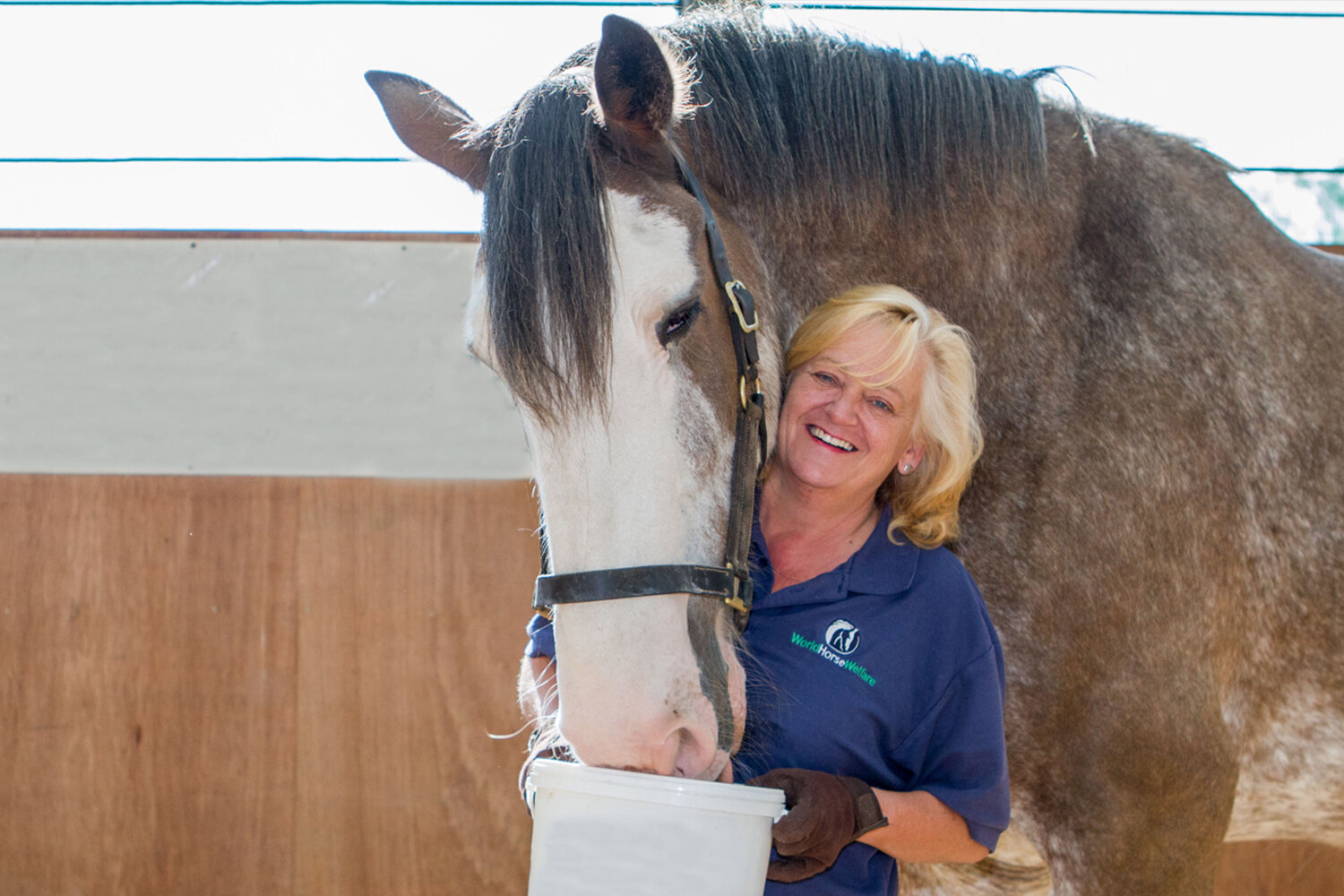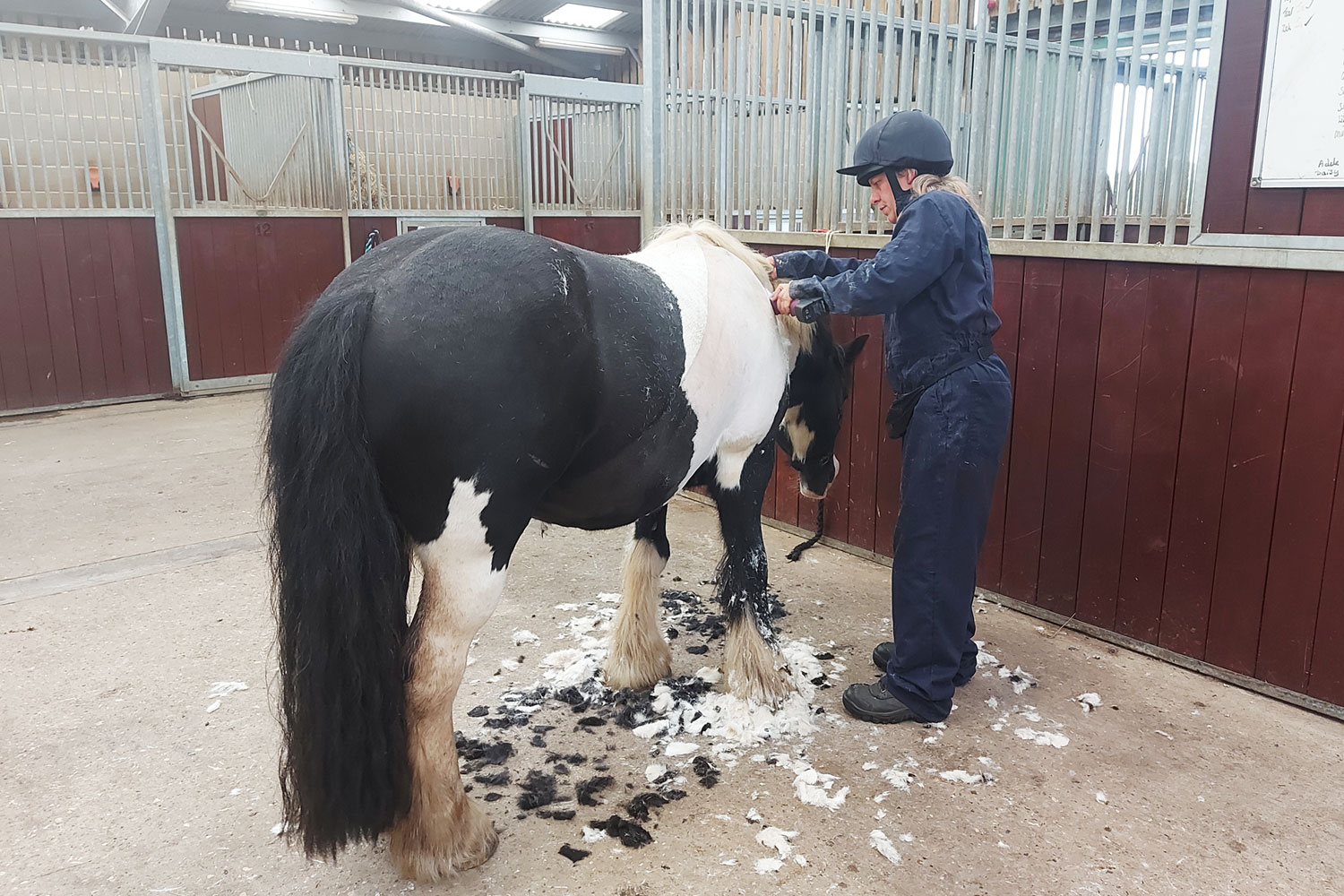Project empowers working horse owning communities through training and upskilling
World Horse Welfare’s project in Guatemala brings sustainable change for both people and working horses.
Posted on 10/10/2016

Leading international charity, World Horse Welfare, has a mission to improve the lives of horses across the globe but the impact of the charity’s project in Guatemala is also empowering local people through training and education.
Guatemala is a mountainous country where more than half of its population lives in extreme poverty. Due to the remote location of many communities and poor infrastructure, working horses are a vital resource for transporting people, goods and food supplies. Most families own at least one horse and within Guatemala there are an estimated 250,000 working equines in total.
A horse is worth between 200 – 300 USD which represents the annual salary of most families so they are an expensive and precious commodity. As a result it is essential that owners are able to care for their horses in order that they can continue working and supporting families and communities.
World Horse Welfare delivers a community-based training project across the Zaragoza, San Andres Itzapa and Santa Maria de Jesus regions. Run in collaboration with local organisation Servicios de Apoyo en Bienestar Equino (SABE), the project empowers owners and safeguards their livelihoods by increasing their knowledge of, and access to, proper equid care.
The project focuses on creating a support network for working equid owners by building skilled capacity within their communities through the training of selected local Community Based Equine Advisers (CBEAs), farriers (who keep the horses’ feet healthy and fit metal shoes to protect them from stony terrain) or saddlers. CBEAs are central to this network, supporting equid owners by providing advice and help on how best to care for their most important asset.

Some of the most common injuries in the working horses of Guatemala are caused by old, damaged or poorly fitting pack saddles. These can create deep lesions which are not only extremely painful for horses but if not treated, can also become infected and lead to further severe health problems.
By training community representatives in the skills of saddlery, local materials are used to make new pack saddles which reduce the number of injuries and ensure horses can continue supporting family livelihoods.
Victor’s Story
21 year old Victor lives in the Las Lomas community with his seven brothers and sisters. He was born with a disability which makes it difficult to walk so his ability to support his family through farming work was severely hindered. Victor is very resourceful and helped in other ways such as collecting corn leaves for animals and kindling for the cooker; however he was keen to find a new route to make a living. Victor attended the first ever meeting World Horse Welfare and partner organisation, SABE, held in the community and shortly after, his passion and enthusiasm meant he was one of eight students selected for the first saddlery training module.
Victor’s eagerness to learn and aptitude for saddlery quickly became apparent – with him consistently being the first to complete each practical module doing so to the highest possible standard. In September 2014, Victor graduated from the training course with outstanding scores but he was not willing to stop there and set about opening up the first saddlery workshop in Las Lomas.
With the support of funding from World Horse Welfare, Victor bought the necessary equipment and secured a good site which is easily accessible by local horse owners. Victor’s workshop ‘La Bendecida’ is now recognised as the ‘go-to’ location to purchase reasonably priced head collars, belly and back cinches and pack saddles – as well as for repairing riding saddles.
Thanks to his determination and hard work Victor now services around eight horse owners each day and is able to both financially support himself and contribute to his family’s income. Victor’s skills provide a sustainable resource for his community which means owners have access to comfortable, correctly-fitting pack saddles and tack for their horses, reducing wounds and injuries. Horse welfare is improved and means they can continue their essential roles in providing transport for goods, families and communities.
Unfortunately in Guatemala, like many other countries in the region, working equids are invisible to the policy and decision makers of the country and it is vital that the challenges faced everyday by these poor horse owning communities are recognised. World Horse Welfare’s work in projects like this one helps shine a spotlight on these communities and demonstrates commitment to these issues. This provides the charity with a much better platform on which to support and then influence governments to recognise the plight of these people and the contribution of working equids to the economy as a whole. Through this we can contribute to significantly improving the welfare of much larger numbers of these invaluable animals.
Find out more about World Horse Welfare’s project in Guatemala.
Topics
Related News

Equine charities host New York Climate Week event
For the first time, The Donkey Sanctuary and World Horse Welfare have taken part in the annual Climate Week NYC.

International Coalition for Working Equids workshop provides practical training
The workshop provided practical training on welfare assessments for working equids in Lesotho
Recommended Blog Posts

Caring for 19 unhandled ponies? All in a day’s work!
Glenda Spooner Farm grooms Amy and Emily describe how a group of unhandled new arrivals kept them very busy last year.

We find out the latest news on Equine Grass Sickness
Belwade Farm Rescue and Rehoming Centre Manager Eileen Gillen shares insights from a conference on the complex disease.

Clipping to help overweight horses and ponies lose weight
Hall Farm Yard Supervisor Adele tells us how clipping can be a really useful weight management tool, especially for horses and ponies who can’t be worked.
Enjoy reading stories like this?
Join over 55,000 other horse lovers and sign up for our email newsletter

Join over 55,000 other horse lovers and sign up for our email newsletter
Sign me up now